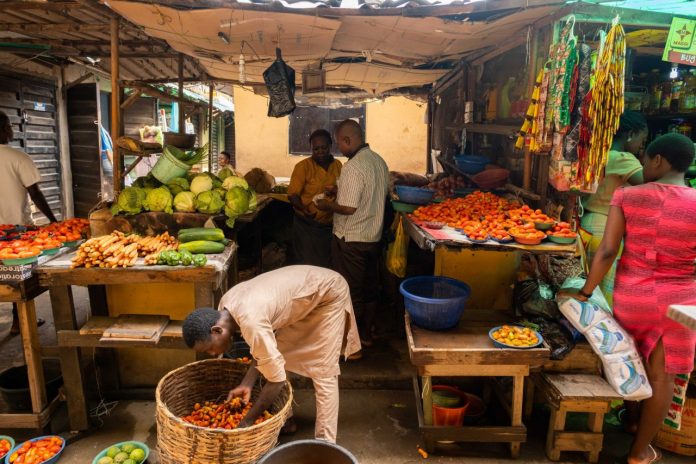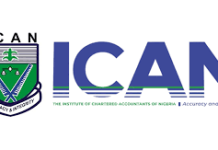Nigerians are facing increasing difficulties in affording basic food necessities as food inflation skyrocketed to 40.66% in May 2024, marking a significant rise from 25.25% in June 2023. This data comes from the latest Consumer Price Index (CPI) and Inflation report released by the National Bureau of Statistics (NBS), underscoring a steep climb in the cost of living.
The CPI measures the average change over time in the prices of goods and services consumed for daily living. The report noted that headline inflation rose slightly to 33.95% in May from 33.69% in April, reaching a 28-year high, primarily driven by increases in food and transport prices.
According to the NBS, the major contributors to May’s headline inflation included food and non-alcoholic beverages (17.59%), housing, water, electricity, gas, and other fuels (5.68%), and clothing and footwear (2.60%).
A detailed breakdown of the data showed a steady rise in food prices over the past year, escalating from 25.25% in June 2023 to 40.66% in May 2024. Notable increases were observed month-on-month, with significant spikes in January (35.41%), February (37.92%), March (40.53%), and April (40.53%).
The NBS identified specific food items contributing to the inflation surge, such as semovita, oatflake, yam flour, garri, beans, Irish potatoes, yam, water yam, palm oil, vegetable oil, stockfish, mudfish, crayfish, beef head, chicken, pork head, and bush meat.
On a year-on-year basis, Bauchi, Kogi, and Oyo were the most affected states, recording the highest inflation rates at 42.30%, 39.38%, and 37.73% respectively. Conversely, Borno (25.97%), Benue (27.74%), and Delta (28.67%) experienced the slowest rise in inflation.
The continuous rise in food prices has weakened the purchasing power of many Nigerians, making daily meals increasingly unaffordable. Contributing factors include government policies like the removal of petrol subsidies and large government purchases of foodstuffs for palliatives, which have intensified inflationary pressures.
At the March Monetary Policy Committee meeting, Central Bank of Nigeria Governor Olayemi Cardoso highlighted the role of structural factors and government purchases in driving inflation. He noted that despite raising interest rates, inflationary pressures have persisted, compounded by high food and energy prices and seasonal factors such as religious fasting and festive periods.
Economic analysts have expressed concern over the inflation surge. Shadrach Israel, an economist with Lotus Beta Analytics, emphasized the need for a multi-faceted approach to address underlying structural issues, including monetary policy tightening, supply-side reforms, and social protection programs. He stressed that the government must take immediate action to restore purchasing power and promote economic stability.
Jonathan Thomas, a development economist, highlighted the impact of high insecurity on food inflation. He pointed out that many farmers have been displaced due to insecurity, exacerbating food shortages. Thomas urged the government to prioritize economic reforms, diversification, and tackling insecurity to ensure a stable and prosperous future for Nigerians.













